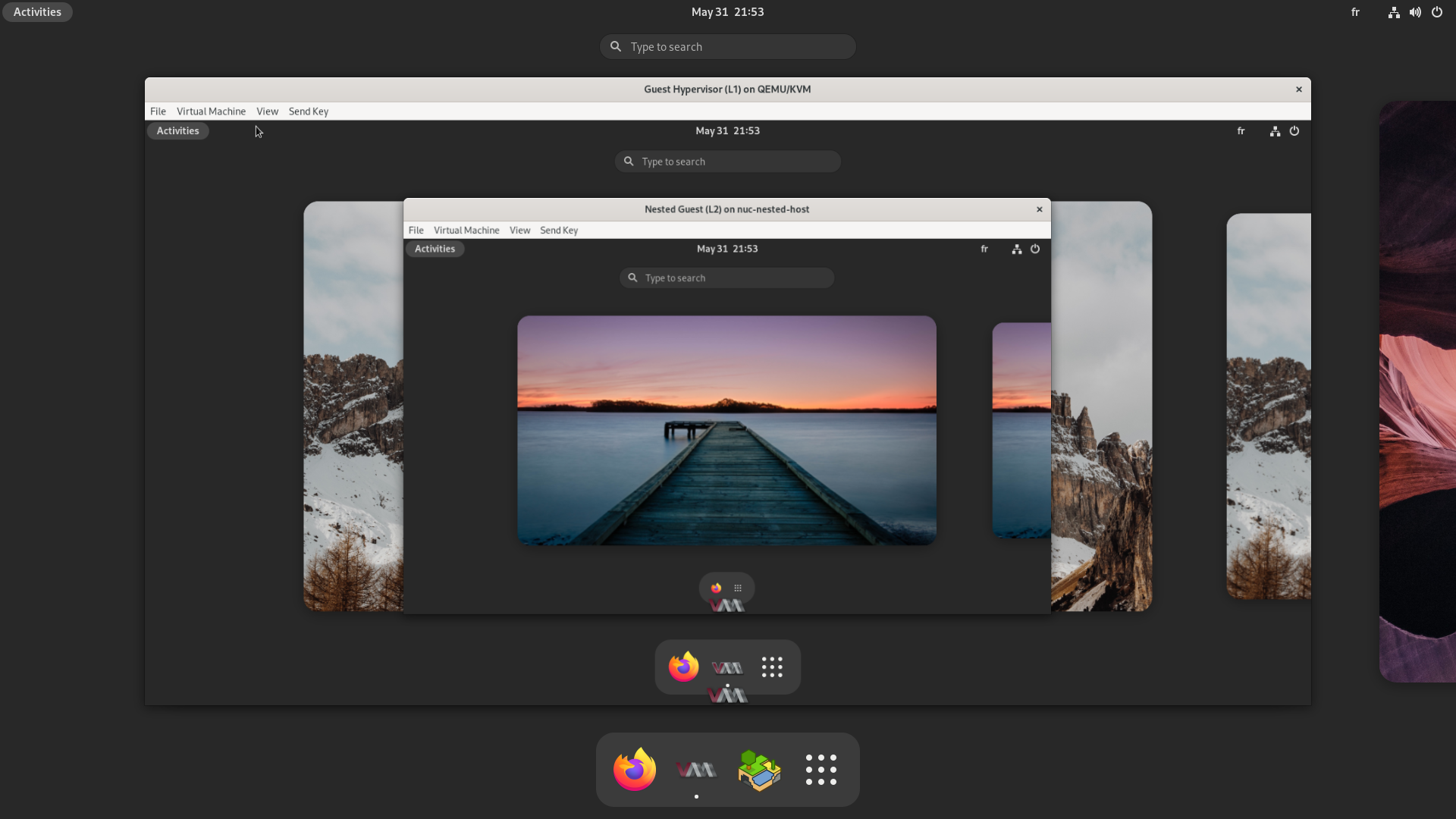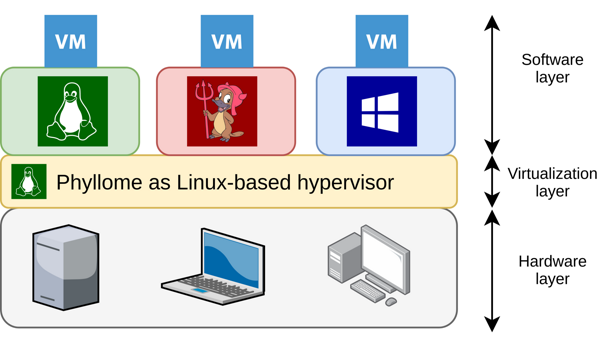Phyllome OS
Introduction
Disclaimer: Phyllome OS is still very much an alpha stage project.
Phyllome OS is a multi-user, local-first, desktop-oriented, free and open-source Linux distribution designed to host most operating systems using off-the-shelf hardware and virtualization techniques.
It is not meant as a replacement for any preexisting operating systems. It is best understood as a wrapper around them, a shell that gives them more abilities, such as the capacity to be migrated from one computer to the other, or to be duplicated at will.
Resources
- Wiki
- Chat, via Matrix
- FOSDEM 2022 presentation
- Alpha release
- Kanban board
- Codebase
Use cases
-
Run multiple guest operating systems concurrently
- Plug in two screens, two sets of keyboards, and two mice to the same PC and spawn two machines to do graphic-intensive tasks such as gaming or 3D modeling. No need to buy another computer, just split the one you already have.
-
Painlessly move to new hardware
- When virtualized, your operating system is just a file on Phyllome OS' disk. You can move and restore it on another computer, provided that the targeted host runs Phyllome OS or use similar technologies.
-
Make your current hardware last longer
- Most recent versions of modern operating systems require recent hardware to function, and may not work on otherwise perfectly functioning hardware. By providing modern virtual hardware, Phyllome OS allows users to receive operating system updates, even though their underlying may not officially be supported.
Okay, but what does it look like?

Digital mise en abyme or a computer running in a computer running in a computer. Yes, there are a few turtles on the way down!
This is a screenshot of a proof of concept that relies on the Kernel-based Virtual Machine (KVM) module for Linux, QEMU, libvirt, virt-manager and GNOME Shell running on Wayland.
Hardware-wise, a Skylake-based Intel NUC, with IOMMU-based hardware-assisted virtualization enabled, is being used.
- The guest hypervisor is using a fraction of a physical graphics card through
vfio-mdev(Intel GVT-g) -
The nested-guest is using a virtual graphics card through
virtio-gpu(Virgil 3D)Technically speaking, Phyllome OS is a Fedora Remix based on Fedora Server 35, but has no affiliation with the Fedora project. The word "Phyllome" refers to a leaf or a foliar part that has evolved from a leaf.
Context
Demystify the cloud
Public clouds provide on-demand computing resources over the Internet. Almost all of them leverage the Kernel-based Virtual Machine (KVM) module for Linux.
Alas, there is currently no production-ready desktop-oriented Linux distribution designed from the ground up to leverage KVM locally.
Bring some of the cloud back home
Phyllome's main intent is to piggyback on some software- and hardware-related innovations used by cloud providers and make them available to a wider audience using off-the-shelf hardware, with a focus on performance and usability.
Vision
Virtualize everything
Eventually, using a software-based or so-called 'virtual machine' should become indistinguishable from using a real one.
In Phyllome's case, it would be a feature, not a bug or hack to be able to use a virtual machine locally that mimics a real one, while at the same time offering more flexibility, as it could be duplicated at will, easily backed up, or migrated to another host for any reasons the user deems fit.
Emphasize usability
Linux will run in the background, hidden in plain sight, while allowing the user to switch to a different operating system if desired. Eventually, the user might even forget the virtual nature of the computing environment.
As such, Phyllome is yet another attempt to bring Linux to the desktop, albeit more covertly this time.

If you are wondering, the platypus is Darwin's mascot. Darwin is an open-source operating system used as the foundation for macOS and iOS.
License and contact
-
License: CC BY 2022 Lukas Greve, except otherwise noted.
-
Contact: drop me an email at contact@phyllo.me
-
Security: did you find a security-related issue lurking in the Phyllome OS code? Please contact security@phyllo.me